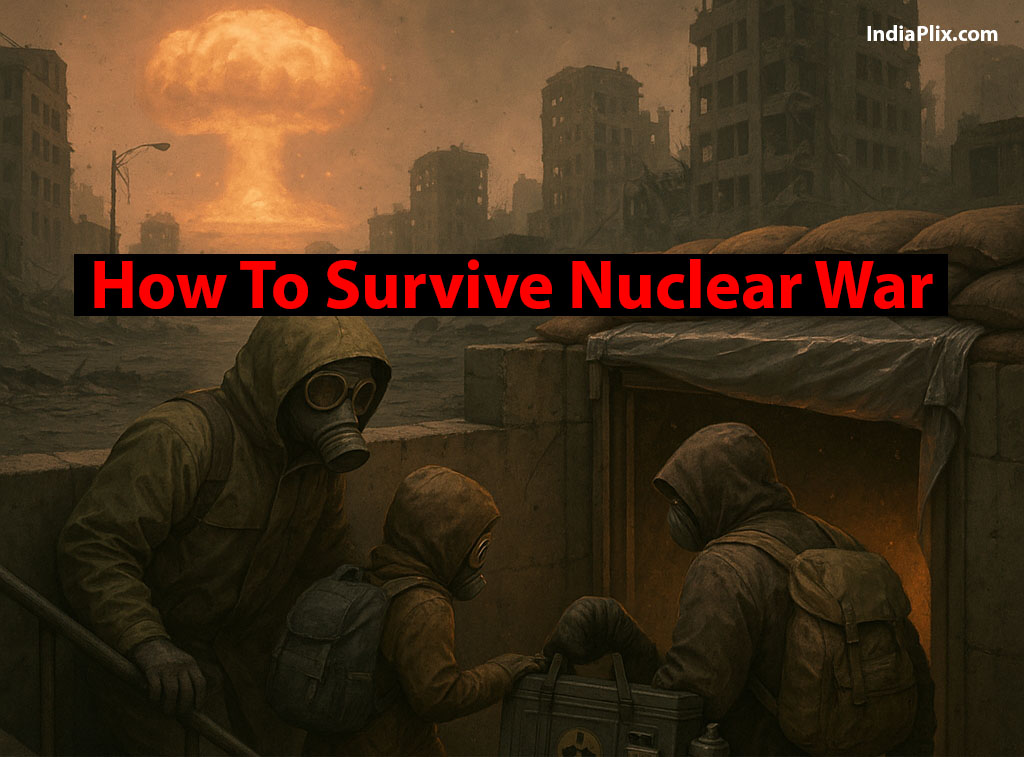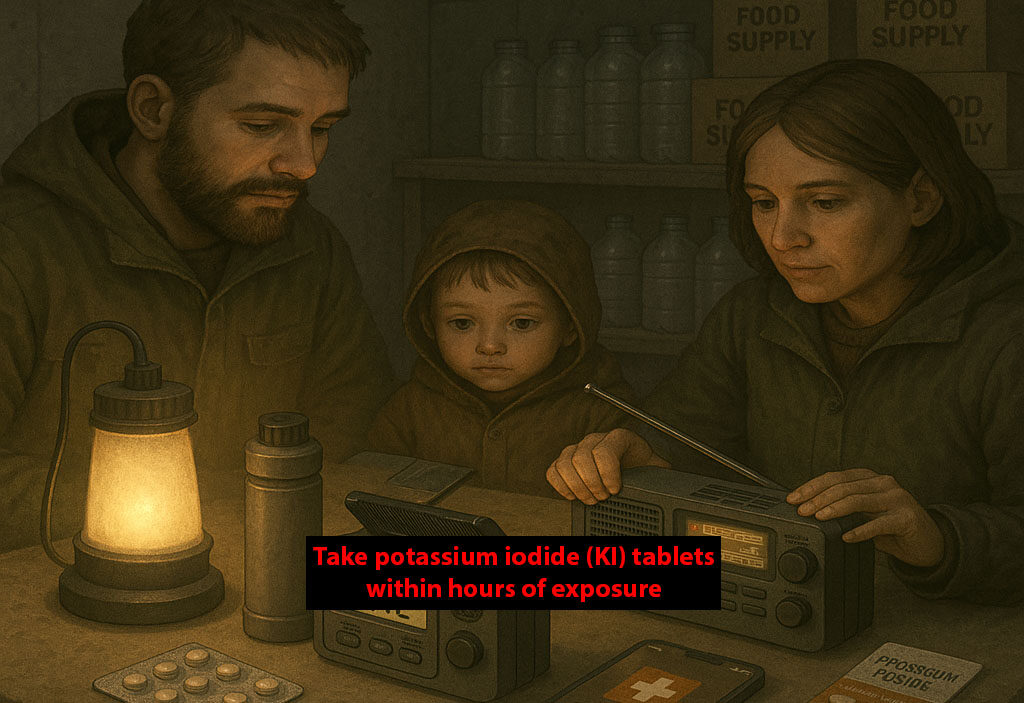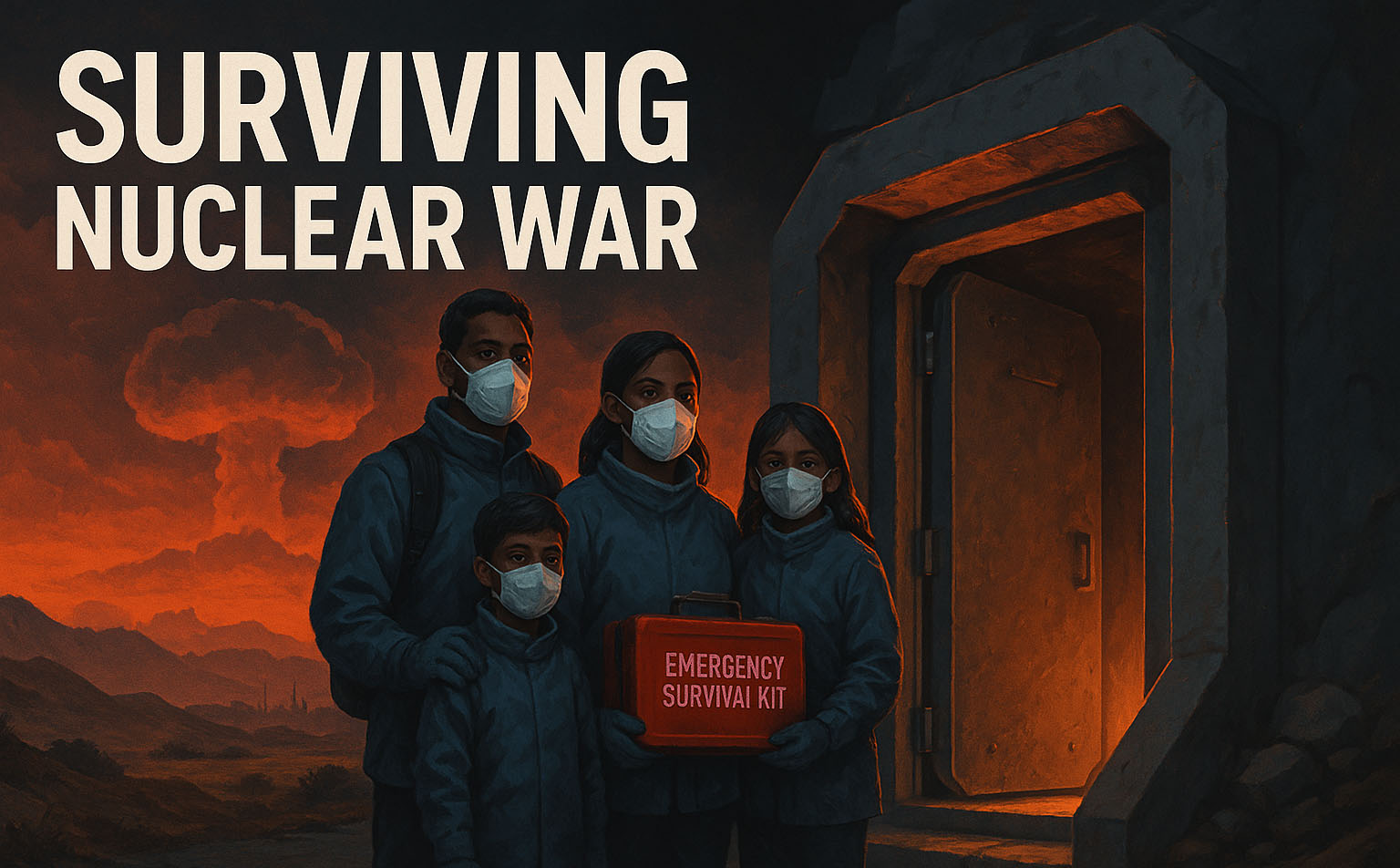
A nuclear bomb detonation is one of the most catastrophic events imaginable, unleashing a blast, intense heat, and deadly radiation. Surviving the aftermath of a nuclear war requires quick thinking, preparation, and the right tools. This news blog post outlines essential steps to protect yourself and your loved ones after a bomb is dropped, drawing on guidelines from global authorities like the World Health Organization (WHO) and the U.S. Centers for Disease Control and Prevention (CDC). From immediate actions to long-term survival, here’s how to stay safe in a nuclear crisis.
Immediate Actions: The First 24 Hours
The moments after a nuclear detonation are critical. A bomb’s effects include a blinding flash, a shockwave, thermal burns, and radioactive fallout, which peaks within hours. Here’s what to do immediately:
- Seek Shelter Fast
Get indoors within minutes to avoid the blast and initial radiation. The best shelter is a basement or the core of a concrete building, away from windows. If you’re outside, find any solid structure—every layer of material reduces radiation exposure. Stay sheltered for at least 24–48 hours, as fallout is most dangerous in the first day.
Pro Tip: Seal doors, windows, and vents with plastic sheets or duct tape to block radioactive particles. - Protect Against Radiation
Radioactive fallout, consisting of dust and debris, can cause acute radiation syndrome (ARS), leading to nausea, burns, or organ failure. Take potassium iodide (KI) tablets within hours of exposure to protect your thyroid from radioactive iodine, as recommended by the WHO. These are available at pharmacies for ₹840–₹2520.
Tech Essential: Use a Geiger counter (portable models cost ₹4200–₹16800) to measure radiation levels and ensure your shelter is safe. - Decontaminate Yourself
If exposed to fallout, remove outer clothing and seal it in a plastic bag to avoid spreading radioactive particles. Shower with soap and water, avoiding cuts or eyes, to wash off contaminants. Do not use conditioner, as it can bind radioactive material to your hair.
Tech Essential: A battery-powered or hand-crank radio (₹1680–₹4200) keeps you updated on government instructions via emergency broadcasts.

Surviving the First Week: Key Strategies
After the initial 24–48 hours, radiation levels drop significantly, but risks remain. Focus on these strategies to survive the first week:
- Secure Food and Water
Fallout can contaminate open water and food supplies. Consume only sealed, pre-packaged items or canned goods. Stockpile at least 1 gallon (4 liters) of water per person per day for two weeks, as advised by the CDC.
Tech Essential: A portable water purifier, like LifeStraw (₹1680–₹8400), ensures safe drinking water if supplies run low or are contaminated. - Stay Informed
Power grids and internet may fail, so rely on a solar or hand-crank radio for updates from authorities. Avoid unverified social media, as misinformation can spread panic.
Tech Essential: A smartphone with offline survival apps, like the Red Cross First Aid app, provides critical guidance. Keep a power bank (₹1260–₹3360) to stay powered. - Prepare for Evacuation
Authorities may signal when it’s safe to leave your shelter, typically after 48 hours when radiation levels drop. Follow evacuation routes and avoid contaminated zones. Wear protective clothing, like long sleeves and a mask, to minimize exposure.
Tech Essential: Download offline maps or use a GPS device (₹4200–₹12600) to navigate without internet access.
Long-Term Survival: Weeks to Months
A nuclear war could disrupt supply chains, healthcare, and infrastructure for months. Here’s how to plan for the long term:
- Build a Survival Kit
Stockpile non-perishable food, medical supplies, flashlights, batteries, and hygiene items for at least two weeks. Include a first-aid kit and prescription medications. A multi-tool (₹840–₹4200) is versatile for repairs or scavenging.
Why it matters: Disrupted supply chains may limit access to essentials for weeks. - Protect Your Health
Radiation exposure increases cancer risk over time. Monitor for symptoms of ARS (e.g., vomiting, fatigue) and seek medical help when safe. Maintain hygiene to prevent infections, as hospitals may be overwhelmed.
Why it matters: Long-term health vigilance is crucial in a post-nuclear environment. - Community Cooperation
Work with neighbors to share resources, information, and security. Community shelters or local government aid may become available after the initial chaos. Stay calm to avoid panic-driven conflicts.
Why it matters: Collective effort boosts survival chances in prolonged crises.
Psychological Resilience: Staying Strong
The psychological toll of a nuclear war can be immense. Fear, grief, and isolation may overwhelm survivors. Practice deep breathing, maintain routines (e.g., eating, sleeping), and connect with others to manage stress. Limit exposure to distressing news once you’re safe.
Pro Tip: Apps like Headspace (offline mode) can guide mindfulness exercises to stay mentally grounded.
Why Prepare Now?
A nuclear war, though unlikely, remains a global concern due to geopolitical tensions. The CDC estimates that a single nuclear detonation could kill thousands instantly and expose millions to radiation. Preparing now—by stockpiling supplies, learning shelter techniques, and investing in tech essentials—can save lives. Governments worldwide, including agencies like the U.S. FEMA or India’s NDMA, urge citizens to be proactive.
Call to Action
Don’t wait for a crisis to act. Build your survival kit, learn your local government’s nuclear preparedness guidelines, and share this knowledge with your community. Visit cdc.gov or ready.gov for official resources. Preparedness today is your shield tomorrow.
Disclaimer: This article is for informational purposes only. Consult local authorities or disaster management agencies for official guidance in a nuclear emergency.






